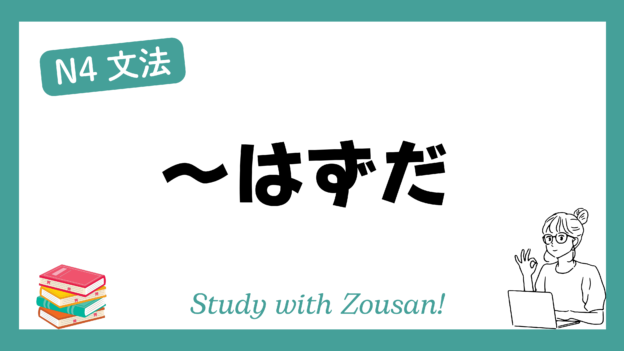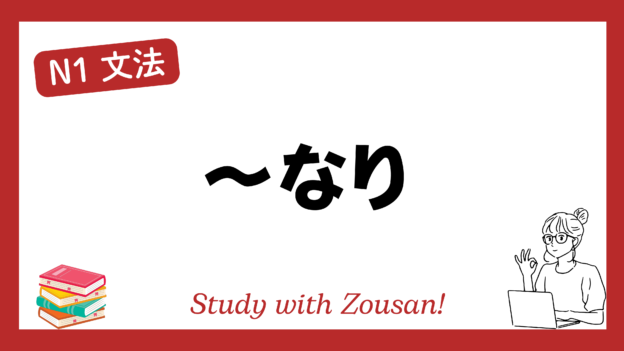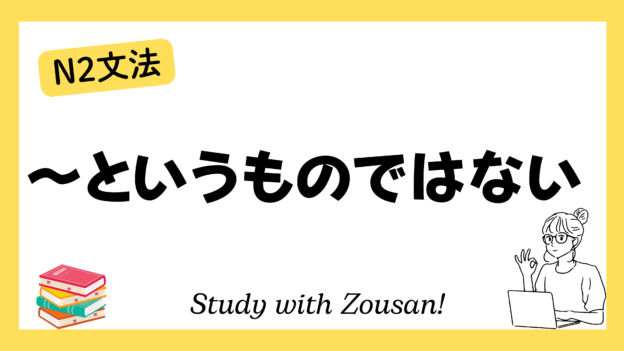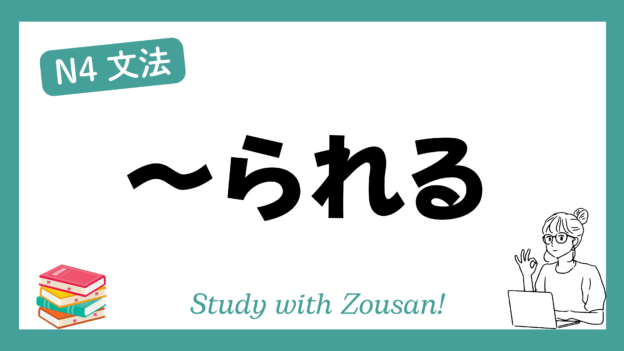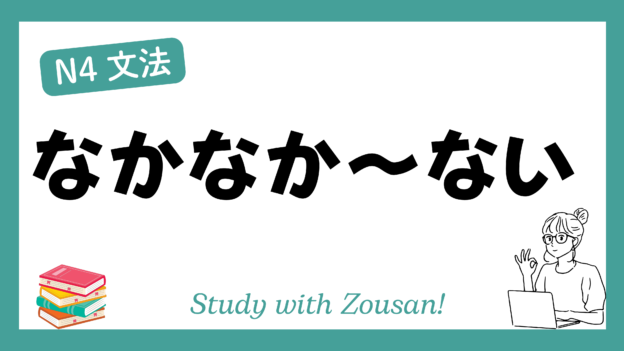N4文法:~はずだ
Meaning: “Should be”, “It is supposed to be”
“~はずだ” is used to express a logical conclusion, expectation, or belief based on evidence or reasoning. It conveys that something is expected or supposed to be true, or that something logically follows from known facts. It can be translated as “should be”, “ought to be”, or “it is supposed to be”.
※Note: This structure reflects the speaker’s confidence in their conclusion based on logical reasoning or personal understanding.
Structure:
| Verb (dictionary form) | + はずだ |
| Noun + の | |
| な-adjective + な | |
| い-adjective |
Example:
-
-
-
🌟 彼はもう家に着いたはずだ。
(かれ は もう いえ に ついた はず だ。)
He should have already arrived home. -
🌟 この薬を飲めば、すぐに治るはずだ。
(この くすり を のめば、すぐ に なおる はず だ。)
If you take this medicine, you should recover quickly. -
🌟 彼女は英語が上手なはずだ。
(かのじょ は えいご が じょうず な はず だ。)
She should be good at English. -
🌟 電車はもうすぐ来るはずだ。
(でんしゃ は もう すぐ くる はず だ。)
The train should be coming soon. -
🌟 彼は今日、休むはずではなかった。
(かれ は きょう、やすむ はず では なかった。)
He wasn’t supposed to take a day off today. -
🌟 パスポートを持っているはずなのに、見つからない。
(パスポート を もっている はず なのに、みつからない。)
I should have my passport, but I can’t find it. -
🌟 彼の説明は正しいはずだ。
(かれ の せつめい は ただしい はず だ。)
His explanation should be correct. -
🌟 今日は金曜日のはずだ。
(きょう は きんようび の はず だ。)
It should be Friday today. -
🌟 鍵はここに置いたはずだが、ない。
(かぎ は ここ に おいた はず だ が、ない。)
I’m sure I left the key here, but it’s gone. -
🌟 彼はそんなことを言わないはずだ。
(かれ は そんな こと を いわない はず だ。)
He shouldn’t say something like that.
-
-



